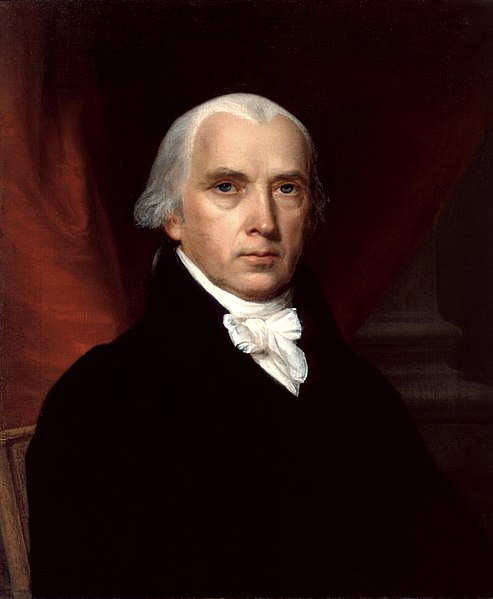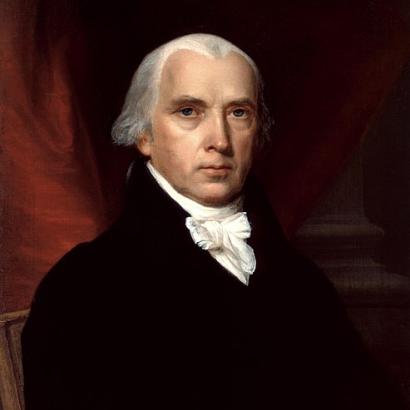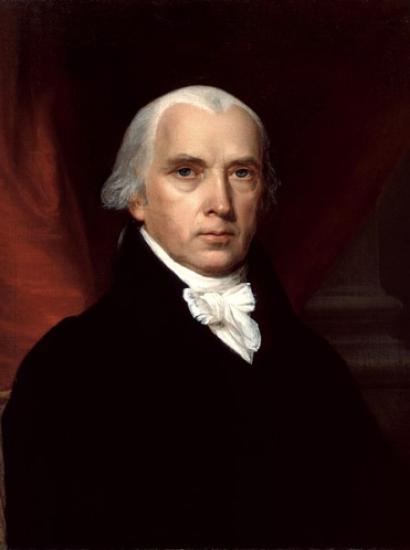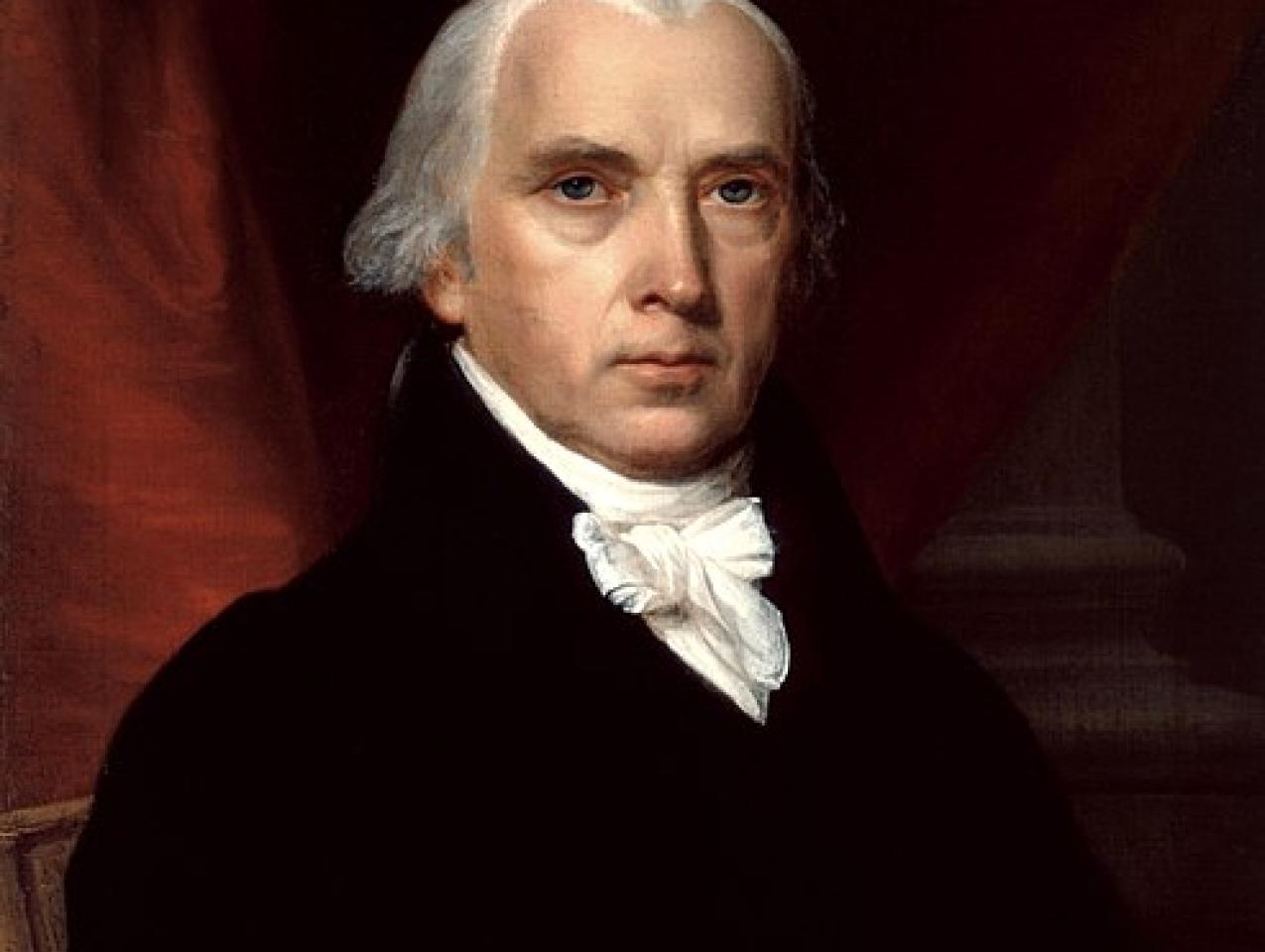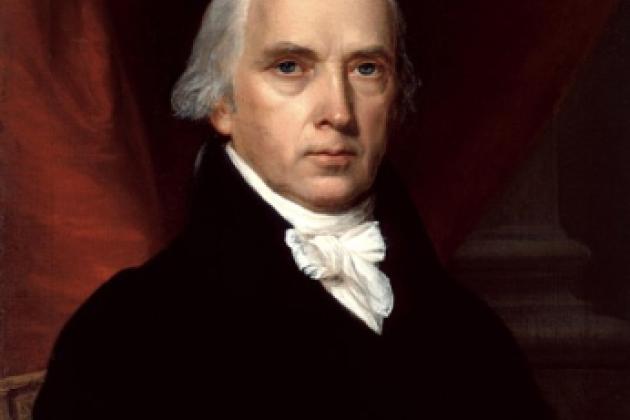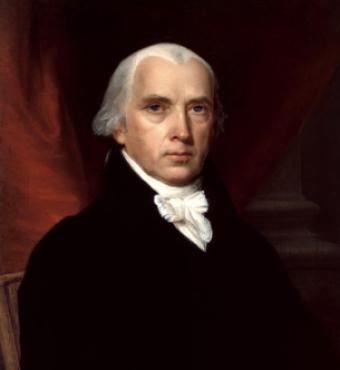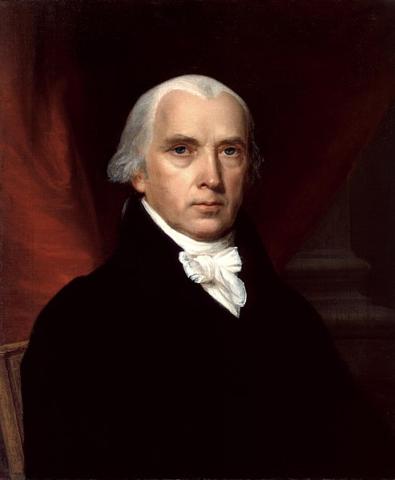- Politics, Institutions, and Public Opinion
Editor’s note: This essay was originally part of a festschrift published by the press of Colorado College for the distinguished political scientist Timothy Fuller. The essay appears in two installments. This is the second one. To read the first one, click here.
In a way political scientists do consider ideas when they study parties; they consider them as “preferences,” often in the phrase “voters’ preferences.” This is a usage borrowed from economics that is intended to pay respect to the fact/value distinction by refraining from specifying whether the thing “preferred” is worth being so. As economic theory progressed from the early nineteenth century, it receded from the common-sense claim that the things people want are useful, which was still respected in the movement known as utilitarianism. Economic goods were to be judged by the standard of “utility.”
But then it was decided that an economist could not in good scientific conscience accept the claim that a thing was desired because it was useful; the most one could say is that it was thought useful or good. This methodological conclusion was in agreement through the back door of science with Machiavelli’s argument that the virtues are not truly virtues except as one is held (tenuto) virtuous, for example that one was liberal or generous insofar as one could gain credit for one’s giving. This was the “effectual truth” of the virtue. Economics arrives at this sort of truth, not by saying directly that utility doesn’t exist except as opinion or belief, as Machiavelli said about virtues, but by claiming that one can find in preferences the solidity and scientific validity that cannot be had from the reason or motive for the preference—that something is useful.
One can discover behaviorally that people prefer one thing or taste to another, as for example vanilla to chocolate, even though one cannot say scientifically that either of those common tastes is good in itself. One can know better without knowing good. Knowledge of preferences for one thing over another substitutes for knowledge of the thing’s worth or utility. Objectivity comes out of subjectivity, just as with Machiavelli’s effectual truth but without his cynical disparagement of people’s opinions. By claiming less an economist can claim more, for he has set aside the need to show that economics is useful, in the way that Machiavelli would say that his effectual truth is truly useful and the prince’s acquisitions truly glorious. For the economist, it is more surely useful to know what people hold to be useful than whether they really have a grasp on something useful.
Economic goods, however, are mostly truly good in a common sense way, even if they include trinkets and baubles that give pleasure to superficial minds. In any case money is useful, and economics is pretty solid when it confines itself to money. Doubt that money is useful cannot be dismissed, but the economist’s denial that scientific proof exists that money is good arises from methodological nicety rather than high-minded concern for virtue. So, however cautious an economist might want to be, “utility” is still somewhere in the picture for him. The case is quite different when one moves into politics or the pseudo-politics of game theory, which was born outside political science but has come to be very tempting to political scientists.
In political science the preferences considered would include specific policies (on late-term abortion, for example) as well as general principles (pro-life or choice). But in politics it is strange to describe such positions as mere preferences, for unlike vanilla and chocolate, they oppose each other. It is as if vanilla lovers wanted to do away with chocolate instead of merely preferring it while still liking or tolerating another choice. Ideas called “preferences” are being harmonized, and the conflicts among them minimized, as if both could survive together in a society understood as a market. You have yours, I have mine, and we don’t have to fight or even dispute over which is better. Neither preference wants to prevail over the other because in principle they do not exclude the other. If a preference disappears, this is because it has been abandoned, like the horse and carriage, and there is no demand for it.
Political ideas disappear too, for example socialism, but that happens because it has lost the fight to prevail, not because it has harmlessly gone out of fashion. “Voters’ preferences” are not really preferences in the non-technical or non-scientific (which I am tempted to call the true) sense of the word; they are contentions not merely in favor of one’s own but also, and mainly, against another’s contentions—your opponent’s. Vanilla and chocolate lovers do not disapprove of, or even dislike, each other, but Democrats and Republicans do. A preference does not need an argument, but a partisan contention does need one, indeed consists in one.
A partisan contention wants to prevail over its opposite, but not merely to prevail in the sense of winning a game, winning once at the end of the game. It wants to rule the whole society, including its opponent, and it wants to do so by imposing its rule, which means its set of rules. To rule is to rule by a principle that rules, by continuing to rule. Thus the pro-life or pro-choice contention wants not just a single victory but, like the victory of the pro-choice contention in Roe v. Wade, one that establishes its principle as ruling the whole. A party is a part of the whole that wants to rule the whole. Its contention is a claim to rule, a justification of its rule against that of its opponent or opponents.
So a party is not playing a game with rules that both sides accept—though, when party government has arrived, it does contend within a constitution with an understanding that permits a change of parties. But the party contention is mainly about the rules and not merely within the rules as of a game. A party, then, is a factor or speaker in a dialectic. It’s not that parties have different ideas, as with preferences, but that their ideas are directed against those of its opponents. If one listens to political debate expressing ideas, rather than merely dismissing it as of no account, it is immediately obvious that parties are continually attacking and defending ideas, not merely stating them as with preferences. Parties claim to rule with ideas that oppose their opponents’ ideas and that claim to rule the whole despite their opponents’ ideas, and not just over their own ideas or a part of the whole. Of course parties will have to compromise with their opponents and cede to them when they lose, in accordance with the system of party government, yet this is not what they want or claim.
There is another difference between partisan ideas and preferences, which is that the former have to make viable arguments. Unlike preferences, they have to face reality. In economics, preferences represent the demand side of the basic curve; they state the wishes of consumers or buyers, more at a lower price, less at a higher one. But the price is determined at the intersection of demand with the supply curve, representing what is available at what price, so to speak reality as opposed to wish.
In political science, however, voters state their preferences in surveys and at the election polls without regard to the feasibility or cost of what they wish for. There is no supply curve, or none as clear as the demand. Of course each party in its partisan argument claims to be in touch with reality; it represents its wishes as needs or necessities that would bring disaster if not met, and it proposes means or remedies that are said to be available rather than merely promised.
But it is easy for partisans to overestimate the resources available to finance their party’s policies, as it is to underestimate the strength of resistance from the opposing party or parties. Parties are typically desirous of winning their points over their adversaries rather than winning them over with prudent concessions. They want to rule and to be seen to rule rather than to serve the community anonymously and without calling attention to themselves. You might gain a preference with quiet satisfaction, but for a partisan, nothing beats the joy of a victory celebration. In this, partisanship is indeed like, not playing, but winning a game. The difference between politics and a game is that politics is about the common good and concerns justice, whereas winning a game is victory for one’s own self or team. Justice introduces a distinction between groups that seek it and those who do not, which is the basis for a distinction between party and faction.
In Federalist 10 James Madison defines a faction clearly but not quite as simply unjust. He calls it “a number of citizens . . . adverse to the rights of other citizens or to the permanent and aggregate interests of the community,” thus distinguishing, but also combining, individual rights and the common good. He also brings in the concept of “interest,” which can lead one astray when actuated against others’ rights but send one on the right path when directed at the common good. This ambivalence, putting “interest” on both sides of justice, for and against, suggests the difficulty that would arise in distinguishing party from faction, which Madison does not do. He only leaves it open for “a number of citizens” to be “united and actuated” on behalf of individual rights and the common good.
A “common impulse of passion,” according to Madison, is behind faction, as well as interest. Passion is a further embarrassment to the economic understanding of partisanship that underlies political science today. “Interest” is an eighteenth century concept, first formulated to define and promote a deliberate, calming, rational calculation of one’s advantage as against the disadvantage of losing one’s equanimity and real benefit in glory-seeking, resulting in fruitless, imaginary, and unnecessary victories of disputation and conquest. In this conception, men’s interests will differ but in a way to promote pacific toleration if not harmony: “my interest is to gain at your expense; so I’m sorry, and I’m sure you understand.”
Today “interest” has lost its original bite against passion, which has come to mean mere intensity of feeling in the pursuit of one’s interest. But in Madison’s Federalist 10, interest and passion are distinguished as two separate impulses, and passion is given greater power and scope. The protection of unequal faculties of acquiring property will divide society into “different interests and parties,” but passion is unlikely to be calmed by rational understanding. Different interests are expressed in different opinions, not only regarding property but also religion and government, and these are put forward with “zeal,” resulting in “mutual animosities,” a propensity so powerful that it creates “frivolous and fanciful distinctions” when nothing substantial is at stake.
Madison’s famous solution for the enduring menace of passion is to involve “the spirit of party and faction in the necessary and ordinary operations of government.” Strangely, both “party” and “faction” are retained, thus implicitly distinguished, but treated the same. “Faction” receives the pejorative definition (as above), but “party,” which need not be factious, is said to have a “spirit” shared with “faction,” namely, of mutual animosity. It seems that “as long as the reason of man continues fallible,” good men in promoting their opinions will display and suffer from the same spirit as bad men acting unjustly.
This does not mean that the two sorts are identical, or that party is necessarily faction, but both must be treated as if they were. Zeal for the good of a free society can be as disruptive as active evil against it. This also does not mean that public spiritedness does not exist or has no effect, and that all politics is either interest or zeal; rather, politics must be as ready to deal with the passion for justice as carefully as that for injustice. To believe and write as if passion were reducible to interest, as do our political scientists, is to overlook the ideas for which partisans have zeal and to minimize the mutual animosity as well as the importance of their disputes.
It must be said, however, that Madison does not show interest in partisan ideas. In the connection between reason and self-love he fastens on the latter, on the inevitability of the attachment to one’s own that makes human reason fallible. Party conflict for him is between or among “different opinions,” not between opposing or contradictory opinions.
In this he differs from Aristotle’s comparable analysis of partisanship. Aristotle speaks of the two characteristic parties in a society (or “city”), which are oligarchy and democracy, the few and the many. Each of these has its way of speaking of justice, so that there is an oligarchic and a democratic justice, and neither grasps the whole of justice. Oligarchic justice is inequality, and democratic justice is equality. In their partisanship they disregard the personal element and judge badly, he says; they agree that justice is equality but disagree whether it is equality for all or for equal persons. Each party goes a certain distance in defining justice but not the whole way. Each party is partial, so that party is a part of the whole. Yet each party presents itself as a whole, somehow including the part, democratic or oligarchic, that it does not favor. Democrats give a democratic view of oligarchy, and oligarchs their view of democracy, and Aristotle in his analysis helps them to acquire recognition of the other in their own terms. Partisans are not simply speaking of themselves in their self-love, but giving a partisan opinion of the whole, as represented in a partial opinion of justice.
Aristotle narrows Madison’s “different opinions” to two that are typical of political life everywhere and that imply a whole, an attempt at a whole that brings together the few and the many. If the attempt could succeed, which is of course very unlikely, the result would be a harmonious, complete whole.
Madison, following the modern political philosophy of John Locke particularly, assumes and begins from individuals who do not belong to a whole but must create one by consent. The consent is among equal individuals, and their equality in the right of consent takes precedence over inequalities, “the diversity in the faculties of men” that Madison finds, however necessary and useful such inequality may be.
Aristotle makes a point of the reasoning of parties, carrying on and developing an argument between them throughout his Politics. He admits that parties are typically factious, but rather as partially just than unconcerned with justice. He suggests a distinction between party and faction as between contributing to a nobly constituted whole and a deviant one, perhaps with a lesser, imperfect harmony that is oligarchic or democratic instead of being above both.
Madison, with a more fundamentally democratic outlook, passes over the partiality of partisanship as well as the whole of justice to which partiality contributes and the argument among or between partial parties that characterizes their “mutual animosity.” He treats party and faction in the same way, as expressive of fallible human self-love, though differing by promoting or disregarding justice and the public good. The distinction is implied in the definition of faction rather than stated and explained, perhaps because Madison by justifying party believed he would also give legitimacy to the faction he opposed as the bane of republics.
Nonetheless, both Madison and Alexander Hamilton in The Federalist show an appreciation for the activity and value of the few that contrasts to the neglect in our time. They consider the few not as a party with a characteristic claim against the many, as does Aristotle, but as individuals characteristically distinct from most others: as ambitious. In their defense and explanation of a popular Constitution with a characteristically vigilant and often passionate distrust of the few, they speak in mostly hostile terms of ambition; it is “dangerous” or “perverted” and accompanies jealousy, vanity, intrigue, avarice and revenge.
Yet the most famous reference to ambition departs from republican suspicion of it: “Ambition must be made to counteract ambition,” said Madison in Federalist 51. He said this in the context of the separation of powers to declare that each of the three branches of government needed constitutional authority to defend itself. Each means of defense—such as judicial review for the judiciary, a limited veto for the executive, the power of the purse for Congress—would enable the ambitious few in that branch to defend it by counteracting their ambitious fellows. In this, The Federalist’s first presentation of the separation of powers, Madison emphasizes counteracting, the checking function that provides republican safety from aggressive ambition.
Ambition by itself may not be a good thing, but in a competition of “supplying, by opposite and rival interests, the defect of better motives,” the result is good. Here ambition is equated with one’s interest, “the private interest of every individual” serving as a “sentinel over public rights.” Yet where is the spirit, the passion as opposed to the interest, of ambition that seems so characteristic of it? The Federalist does indeed go beyond the negative, the interested, the checking function of the term.
With another most famous sentence in Federalist 51 Madison suddenly addresses personally a putative legislator: “In framing a government . . . the great difficulty lies in this: you must first enable the government to control the governed; and in the next place oblige it to control itself.” When the government is framed to control itself, its forms are called “auxiliary precautions” to the main precaution of popular election, or as today, democratic accountability.
But in controlling the people—a function our more democratic age would tremble to admit—the government prevents them from being unruly and improves them. Republican safety is elevated to republican virtue; self- control arrives through self-government. Later in the text, as The Federalist spells out the positive functions of the branches, it becomes clear that counteracting is indeed vying for the best result, functioning not merely to prevent the worst but to improve the typical result. Contentious ambition is not for safety alone but also, and more, for governing well by exploiting the talents of the ambitious. For this function Hamilton, in still another famous sentence, uses another phrase: “the love of fame, the ruling passion of the noblest minds, which would prompt a man to plan and undertake extensive and arduous enterprises for the public benefit . . .” (Federalist 72). Here ambition, now called “love of fame,” becomes a virtue beyond mere personal interest (while including it) that is dedicated to the public benefit.
Love of fame is also love of honor, a motive distinct from interest because it is both private and public, and passionate rather than calculated. The Federalist speaks of the American republic as vindicating “the honor of the human race,” of the “honorable determination . . . to rest all our political experiments on the capacity of mankind for self-government,” and that “there is in every breast a sensibility to marks of honor . . . apart from all considerations of interest” (Federalist 11, 39, 57). Perhaps only or chiefly the ambitious love honor, but all are sensible to it and appreciate it. Aristotle defines ambition as love of honor (philotimia) and remarks that since people blame both too much and too little ambition, there must be a right amount of this nameless virtue (true in English as in Greek) in the mean between them.
The honor-loving character of ambition does not figure in a political science that shies away in principle and practice from judgments of value. Our political science does not in general speak of ambition or of honor, but rather of interest. Interest is conceived to be on both sides of every issue, as if Democrats and Republicans each represented their own interest and neither ever makes a mistake in doing so. Not only does everyone have his own interest but also everyone understands it perfectly, so that we can speak of the “interest” of the working class, for example, as something clear and undisputed.
“Interest” is offered as a concept that, unlike honor or virtue, requires no judgment of value, and contains no claim to truth; so the political scientist can merely accept as “interest” what they say people define as their “preferences.” With this sleight of hand the subjective becomes objective by accepting all self-reports as accurate. If one had to decide whether the life of a slave-owner was honorable or demeaning, one would have to think, but if one can say it was in his interest, it seems to the scientist that no investigation is called for.
Our political science is concerned with “elites,” which gives it a nodding acquaintance with the few as opposed to the many. But it does not pay attention to the ambitious spirit of elites and rests satisfied with registering their preferences. One political scientist, John H. Aldrich, in his book Why Parties?, perhaps the leading text in the field, offers a contribution to “ambition theory.” But he understands ambition as power-seeking to further one’s interest in a political career. It is not the seeking of honor in public service; the pursuit of one’s interest in politics is no different from some other career and politics is no more than “collective action,” with no distinction between party and faction or conspiracy.
Ambition theory does have the advantage that it calls attention to the ambiguity of “interest” by raising the now-familiar question of whether it is in one’s interest to be ambitious oneself or to be a free rider on someone else’s (perhaps foolish) “ambition.” Here one spots a glimmer of the deeper, classical question of whether the political life of ambition is superior to the contemplative life. But the contemporary political scientist, who would describe the philosophical life and the political life as preferences, is as little interested in the former as capable of understanding the latter.
The difference between party and faction comes down to the difference between good and bad ambition: is there an honorable partisan ambition that deserves to be recognized by a free society and by its political scientists? One notes that the political scientists do refer to “the party system,” a term that sets parties within a whole, not the whole that each of them aims at but a conceptual whole of the political scientist. For “system” is a whole that no part or participant knows of but is imputed to its factors by an unconcerned observer. Of course in their innocence they do not speak of “the faction system,” which is the same thing as the party system for them, bad ambition being indistinguishable from good. Yet ambition is only recognizable as good or bad; it has no neutral existence such as “interest” seems, but only seems, to have.
Thus ambition is lost to sight, the very thing which The Federalist saw to be, and which remains still, the central feature of the politics of the American republic. America is the first republic to seek and to find a solution for the problem of ambition, the problem of reconciling the few and the many—not the least of its exceptional features.







